Mesosphere DCOS
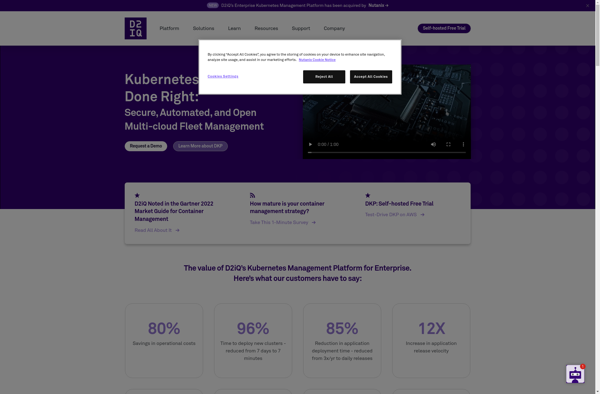
Mesosphere DCOS: Open Source Distributed OS
Mesosphere DCOS is an open source distributed operating system based on Apache Mesos that manages computer clusters and facilitates container orchestration and services using Marathon, Kubernetes, DC/OS itself. It provides resource efficiency, scalability, and ease of management for distributed workloads.
What is Mesosphere DCOS?
Mesosphere DCOS (Datacenter Operating System) is an open source distributed operating system based on Apache Mesos technology for efficiently managing clusters of computers. It provides resource sharing and scalability for distributed applications or services.
Key features of DCOS include:
- Builds on top of Apache Mesos to take advantage of resource sharing and efficient task scheduling across a cluster
- Includes Marathon for orchestrating containerized workloads and services
- Supports running Docker containers and container orchestration frameworks like Kubernetes
- Has a modular architecture, allowing additional services like Spark, Cassandra, Kafka etc to run on top of it
- Includes a GUI and CLI for managing the cluster, services, containers etc
- Highly scalable - can scale to thousands of nodes in on-premise data centers or cloud environments
- Provides high resource utilization and efficiency via Mesos resource sharing
By combining Apache Mesos cluster resource management capabilities with cluster orchestration services like Marathon and Kubernetes, DCOS aims to improve utilization, reduce operational complexity and simplify delivery of distributed applications and services in production environments.
Mesosphere DCOS Features
Features
- Distributed systems management
- Container orchestration
- Service discovery and load balancing
- Scalable and resilient architecture
- Multi-tenant resource sharing
- Built-in monitoring and logging
- CLI and GUI for management
- Integrations with popular frameworks like Kubernetes and Marathon
Pricing
- Open Source
- Enterprise Edition (Subscription)
Pros
Cons
Official Links
Reviews & Ratings
Login to ReviewThe Best Mesosphere DCOS Alternatives
Top Network & Admin and Cluster Management and other similar apps like Mesosphere DCOS
Here are some alternatives to Mesosphere DCOS:
Suggest an alternative ❐Kubernetes
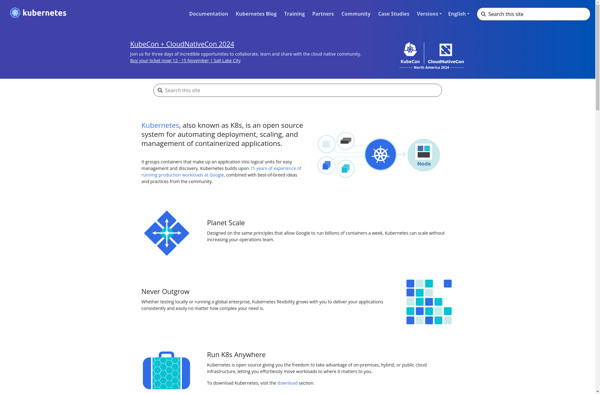
Rancher
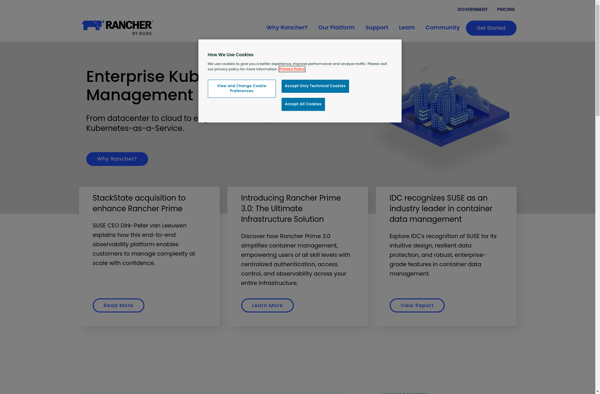
Rancher Desktop
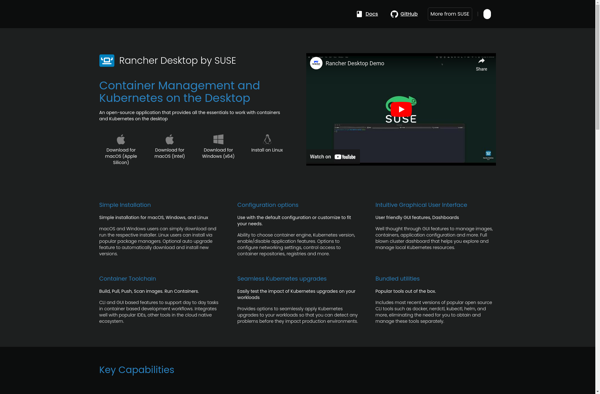
Overnode
Docker Swarm
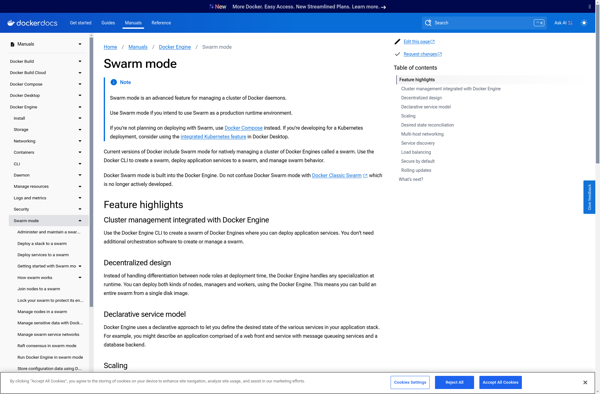
OpenFaas
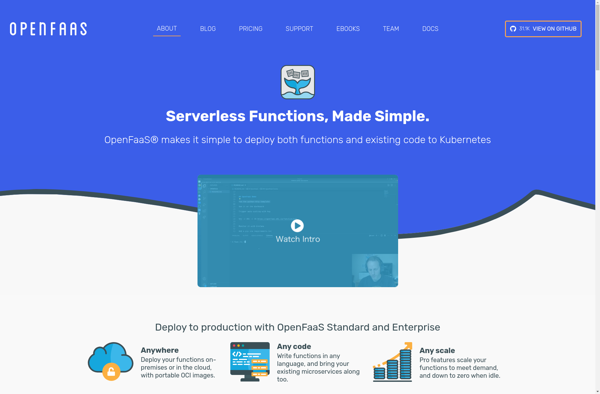
Knative
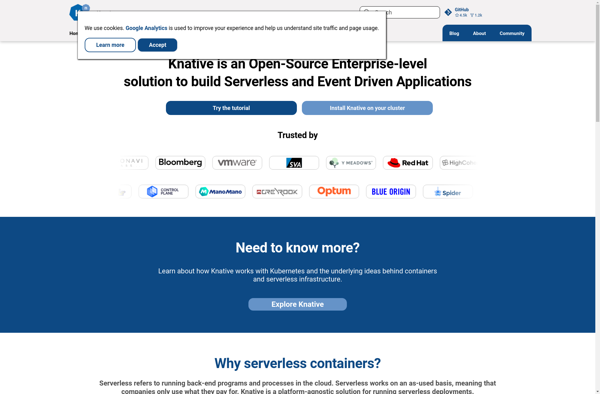
Dokku
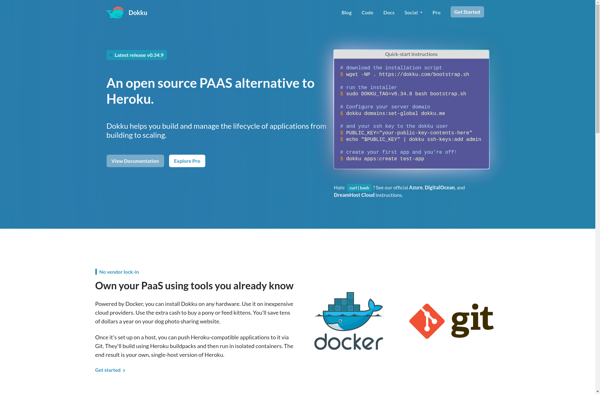
Nebula Container Orchestrator
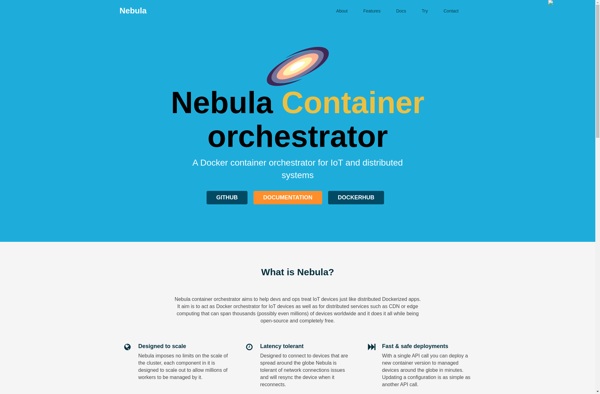
Cycle.io
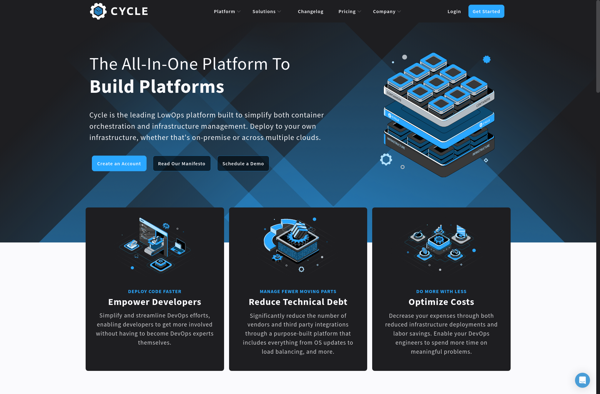
Panamax
TuTum
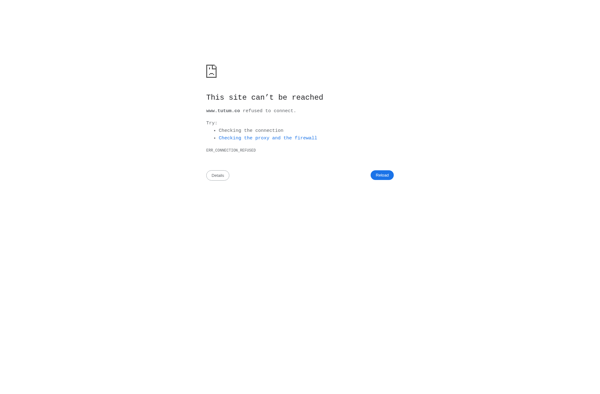
Stackato

StackEngine
